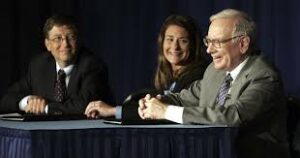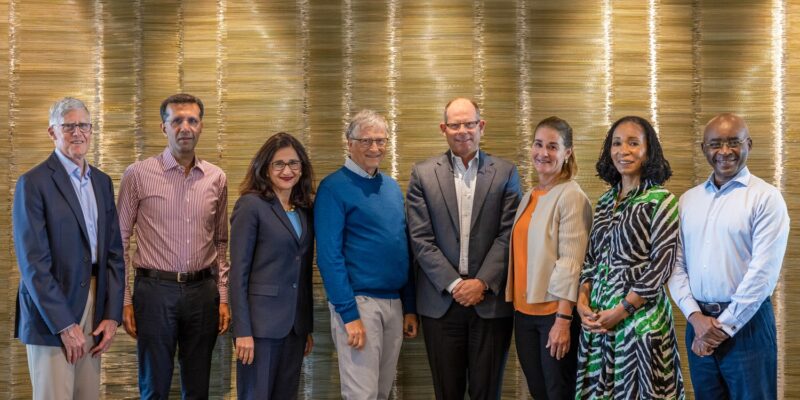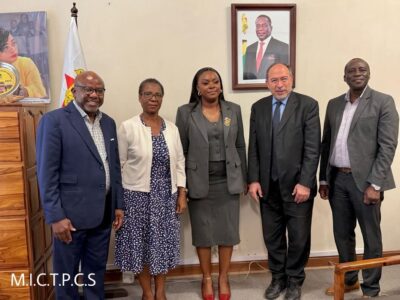By Ross Moyo
Bill Gates, who founded tech giant Microsoft, and the fifth-richest person in the world last month revealed he will give away 99% of his wealth if not all of it away in the next twenty years and has now made it categorically clear that he will in fact give most of his $200bn fortune to Africa.He said he had been inspired to give away money by investor “Warren Buffett and other philanthropists who include Zimbabwe’s Econet Founder Strive Masiyiwa.”
Gates said he would accelerate his giving via his foundation last month.
“People will say a lot of things about me when I die, but I am determined that ‘he died rich’ will not be one of them,” he wrote in a blog post.Bill Gates, spoke to an international audience as the Microsoft founder said that most of his fortune will be spent on improving health and education services in Africa over the next 20 years hence the need for African innovators to take advantage of Artificial Intelligence and come up with solutions that will address the continent’s health and education.The world’s former richest man and 69-year-old said that “by unleashing human potential through health and education, every country in Africa should be on a path to prosperity”.
Gates was Speaking in Ethiopia’s capital Addis Ababa, were he urged Africa’s young innovators to think about how to build Artificial Intelligence (AI) to improve healthcare on the continent.
Microsoft’s god father announced last month that he would give away 99% of his vast fortune – which he expects to reach $200bn (£150bn) – by 2045, by when his foundation planned to end its operations.
According to Bloomberg, “Giving away 99% of his fortune could still leave the fifth-richest person in the world a billionaire.”
Gates founded Microsoft in 1975, along with Paul Allen and the company soon became a dominant force in software and other tech industries.
Gates has gradually stepped back from the company in recent decades, resigning as its chief executive in 2000 and as chairman in 2014.
Critics of his foundation however say Gates uses its charitable status to avoid tax and that it has undue influence over the global health system.
“I recently made a commitment that my wealth will be given away over the next 20 years. The majority of that funding will be spent on helping you address challenges here in Africa,” he said in an address at the African Union (AU) headquarters.
Late President Samora Machel and Nelson Mandela’s surviving spouse ie Mozambique’s and South Africa’s former First Lady Graça Machel Mandela welcomed Gates announcement, saying it came in a “moment of crisis”.
“We are counting on Mr Gates’ steadfast commitment to continue walking this path of transformation alongside us,” she said.
In light of the US government cutting aid to Africa, including programmes to treat patients with HIV/Aids, as part of US President Donald Trump’s “America First” policy, raising concerns about the future of healthcare on the continent Bill Gates philanthropy will certainly cover this gap.
The business mogul said his foundation, which has a long history of operating in Africa, would focus on improving primary healthcare.
“What we’ve learned is that helping the mother be healthy and have great nutrition before she gets pregnant, while she is pregnant, delivers the strongest results,” he said.
“Ensuring the child receives good nutrition in their first four years as well makes all the difference.”
The tech billionaire in a message to young innovators noted that mobile phones had revolutionised banking in Africa, and argued that AI should now be used for the continent’s benefit.
“Africa largely skipped traditional banking and now you have a chance, as you build your next generation healthcare systems, to think about how AI is built into that,” he said.
Pointing to Rwanda as an example, Gates said it was already improving services using AI-enabled ultrasound to identify high-risk pregnancies adding the Gates Foundation had three priorities: “ending preventable deaths of mothers and babies, ensuring the next generation grows up without having to suffer from deadly infectious diseases, and lifting millions of people out of poverty.
“At the end of 20 years, the foundation will sunset its operations,” it said in a statement.














Comments